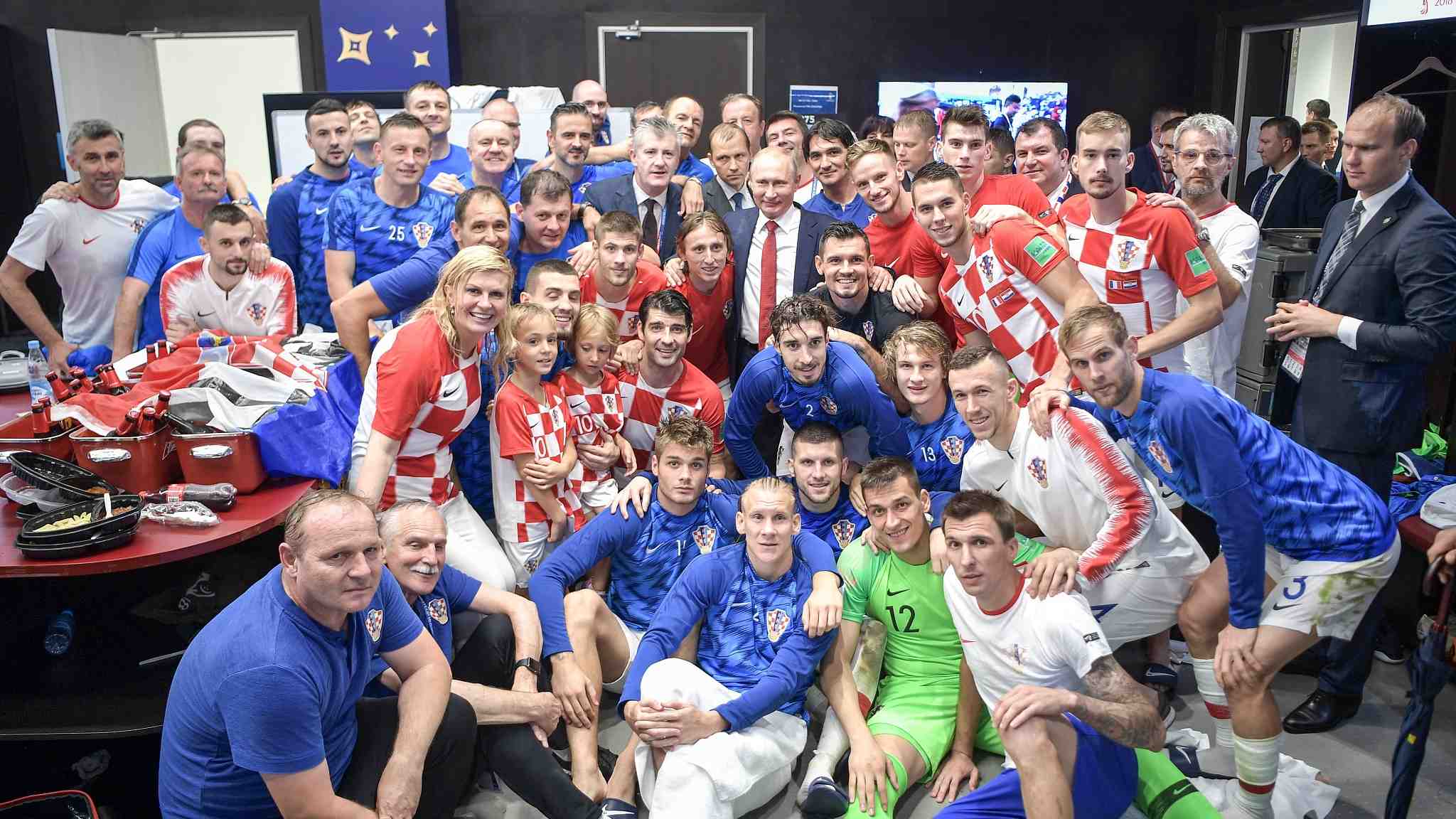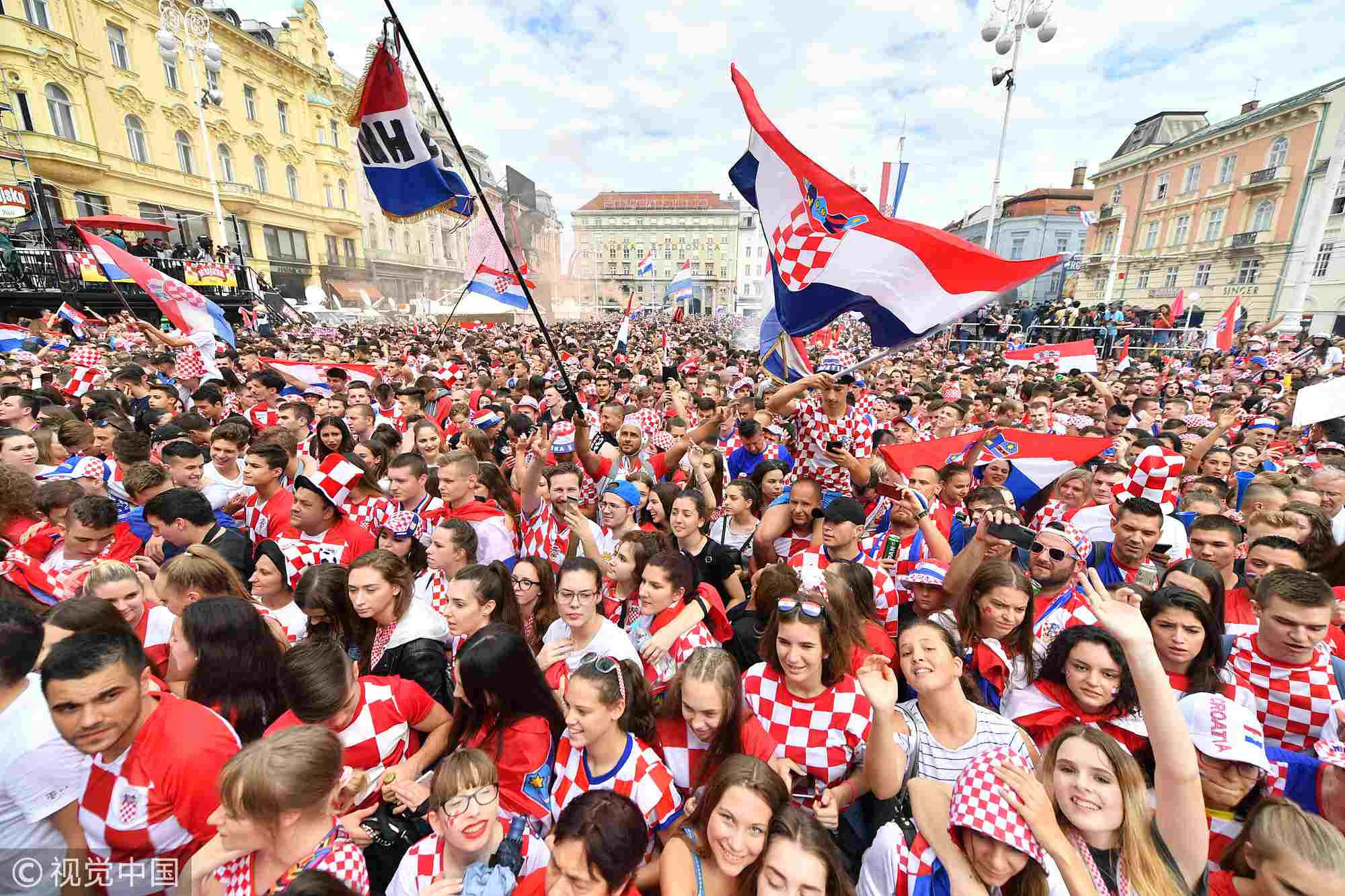
Sports
12:50, 16-Jul-2018
How has Croatia succeeded where larger nations have failed?
Updated
11:58, 19-Jul-2018
Josh McNally

In Sunday's World Cup final, France beat Croatia 4-2. In terms of population, France beats Croatia by a significantly wider margin: 67 million to only four million. And yet it was an equal contest in the final, on the way to which Croatia beat Denmark, Russia and England, countries with populations of 5.7 million, 144 million and 55 million respectively. So how do they compete?
Speaking to the Global Times, Croatia's ambassador to China, Nebojsa Koharovic puts it down to culture. "In our tradition, it is almost unthinkable for young people to not practice some kind of sport," he said. "For young boys, this is especially the case."

Croatia's fans cheer watching the World Cup final soccer match between France and Croatia at the Ban Jelacic square in Zagreb on July 15, 2018. /VCG Photo
Croatia's fans cheer watching the World Cup final soccer match between France and Croatia at the Ban Jelacic square in Zagreb on July 15, 2018. /VCG Photo
Why this is part of Croatian culture isn't clear. Perhaps it's an atavistic reminder of Croatia's past as a country that has always had to defend itself from outsiders, perhaps it's from their proximity to the Mediterranean, a place with a culture that prides itself on aesthetics and competition.
This would explain a lot, including the style of play, which is energetic and full of improvised actions, giving it more in common with the Samba football of Brazil than the gegenpress of the relative neighbors in northern and central Europe.
"We enjoy living and playing, improvising along the way, and entertaining ourselves. We do not take sports as an achievement or a duty," Koharovic said.
By linking "playing" and "living" together, the sport becomes a positive addition to a person's life, not something incidental or unnecessary.
This is perhaps the main reason why Croatia has succeeded where bigger nations have failed. In China, for example, sports are not considered to be integral to a young person's development; they are important, but they are secondary to academic success.
"(Croatians) do not consider time devoted to soccer or sports in general, destructive to other educational goals as it is often viewed in China," Koharovic said. "We think sports go hand in hand with other fields of education and boost our youngsters' development."
For China to succeed on the soccer field, they will need more than to rely on numbers alone. President Xi Jinping has stated he wants to see the country win the World Cup by 2050. That may be a large ask, but Croatia came second this year and have only been competing in the tournament since 1998.
For China to succeed where Croatia has, the country will need to build a sporting culture, and that will take time, but it is possible.

SITEMAP
Copyright © 2018 CGTN. Beijing ICP prepared NO.16065310-3
Copyright © 2018 CGTN. Beijing ICP prepared NO.16065310-3